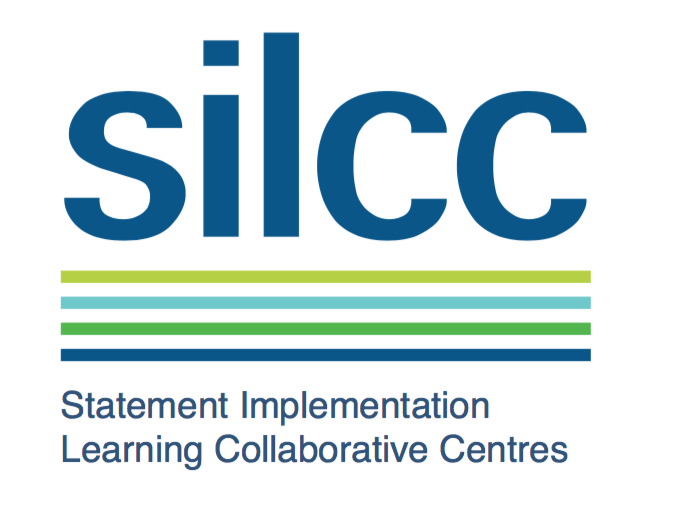EU Monitor – 5/03 Call for more action in the field of vaccination
The EAHP EU Monitor is a regular round up of news relevant to hospital pharmacy in Europe.
You can subscribe to receive the EAHP EU Monitor by email HERE.
EFNA endorses European Statements
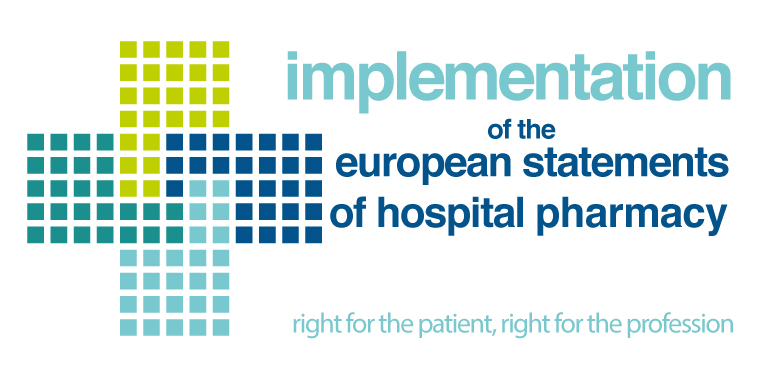
The European Association of Hospital Pharmacists (EAHP) is thrilled to announce that the European Federation of Neurological Associations (EFNA) has endorsed the 44 European Statements of Hospital Pharmacy. EFNA is an umbrella organisation representing pan-European neurology patient groups. The Association joins a growing network of patient organisations that are supportive of the European Statements.
EFNA embraces the concept of partnership for progress – working at a high level with relevant stakeholders from the fields of policy, medical, scientific/research, industry, patient partners and other key opinion leaders. The Association follows the vision of providing a better quality of life for people in Europe living with a neurological disorder.
To date eight other patient organisations as well as eight healthcare professional organisations covering doctors, nurses, pharmacist and education providers have expressed their support for the European Statements.
Learn more about the European Statements HERE
Read about the associations that have endorsed the European Statements HERE
1st meeting of EU’s Coalition for Vaccination

On 4th March, the European Commission brought together Member State representatives and healthcare professional organisations on the topic of vaccination. The group discussed the need to form an EU Coalition for Vaccination comprised out of all relevant actors at European level to combat vaccine hesitance and to better equip healthcare professionals with the skills needed to discuss this topic with their peers and patients.
The EAHP used this occasion to release the Association’s Opinion on Vaccination which welcomes the Council Recommendation on strengthened cooperation against vaccine-preventable diseases on the basis of which the EU Coalition for Vaccination was launched. In its opinion the EAHP recommends the vaccination of healthcare workers to keep themselves and their patients protected. In addition, the EAHP addresses the problem of vaccine hesitance which should be countered through campaigns tackling online vaccine misinformation and developing evidence-based information tools and guidance to support Member States in responding to increased rates of vaccine hesitancy.
Also the problem of vaccine shortages is being addressed, in particular since the 2018 EAHP Medicines Shortages report showed that the shortage of preventable medicines rose from 20% in 2014 to 43% in 2018. EAHP consequently calls on the European institutions to carry out an Europe-level investigation into the causes of medicines shortages including vaccine shortages.
Learn more about the EU’s activities on vaccination HERE
Read EAHP’s Opinion on Vaccination HERE
OECD report on the use of routinely collected data
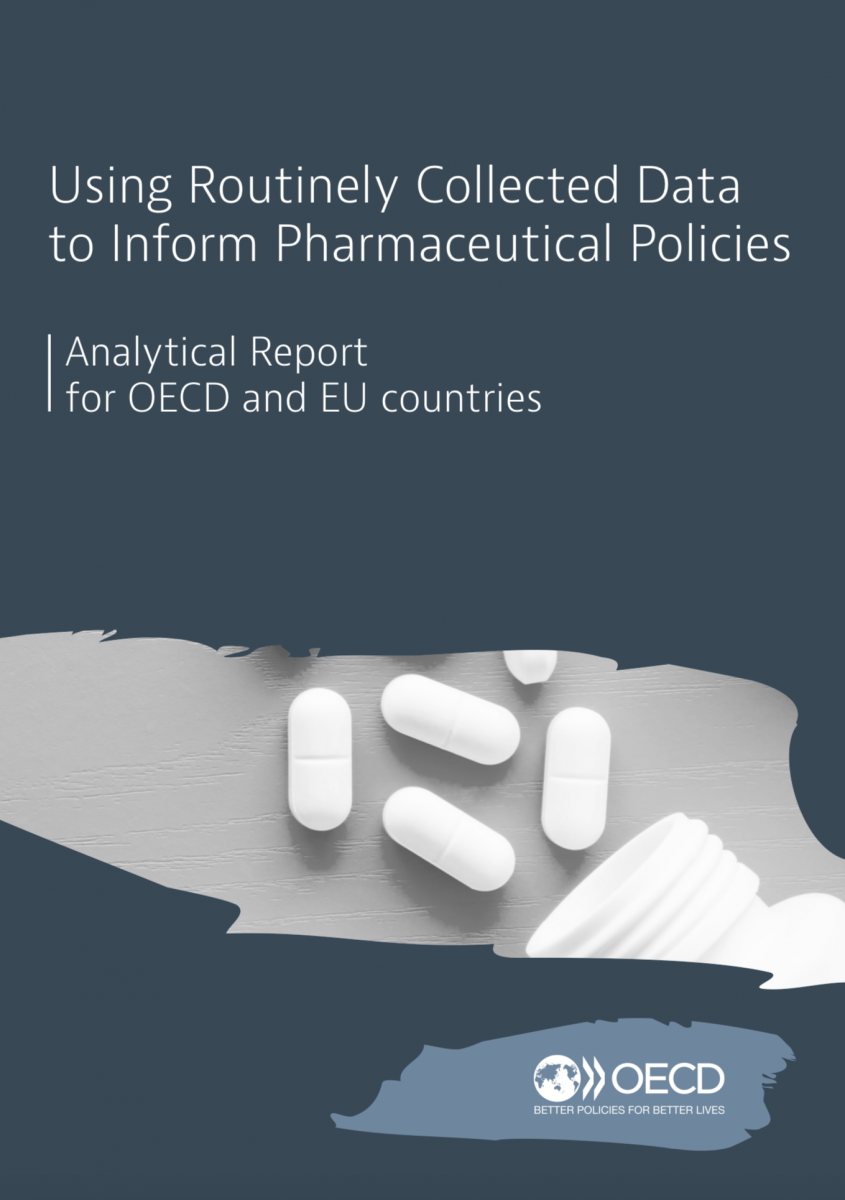
The Organisation for Economic Co-operation and Development (OECD) shared insights on the usefulness of routinely collect data on prescribed and dispensed medicines for health systems. The report analysed how patient-level data on medicines gathered from different administrative sources, such as pharmacy records, electronic health records and insurance claims, is exploited. It shows that such data is a key component for patient interaction with healthcare systems which should be utilised better.
Data was gathered from 26 OECD and EU member countries which responded to a survey addressing the availability and accessibility of routinely collected data on medicines and their applicability to developing evidence. Medicines dispensed in hospitals are rarely covered by the sources that were reviewed for the report and consequently the hospital sector was identified as an information gap. Moreover, the report revealed that the widely collected routine data is not systematically used to inform pharmaceutical policies but rather to monitor consumption and national level spending (22 countries), providers’ compliance with guidelines (18 countries) or prescribing quality and behaviour (15 countries).
The report recommends the further development of methods to increase the leverage of routinely collected data as well as the improvement of cross-border knowledge sharing. In addition, it underlines the need to invest into data infrastructures and data governance.
Read report HERE
AMR continues to remain high
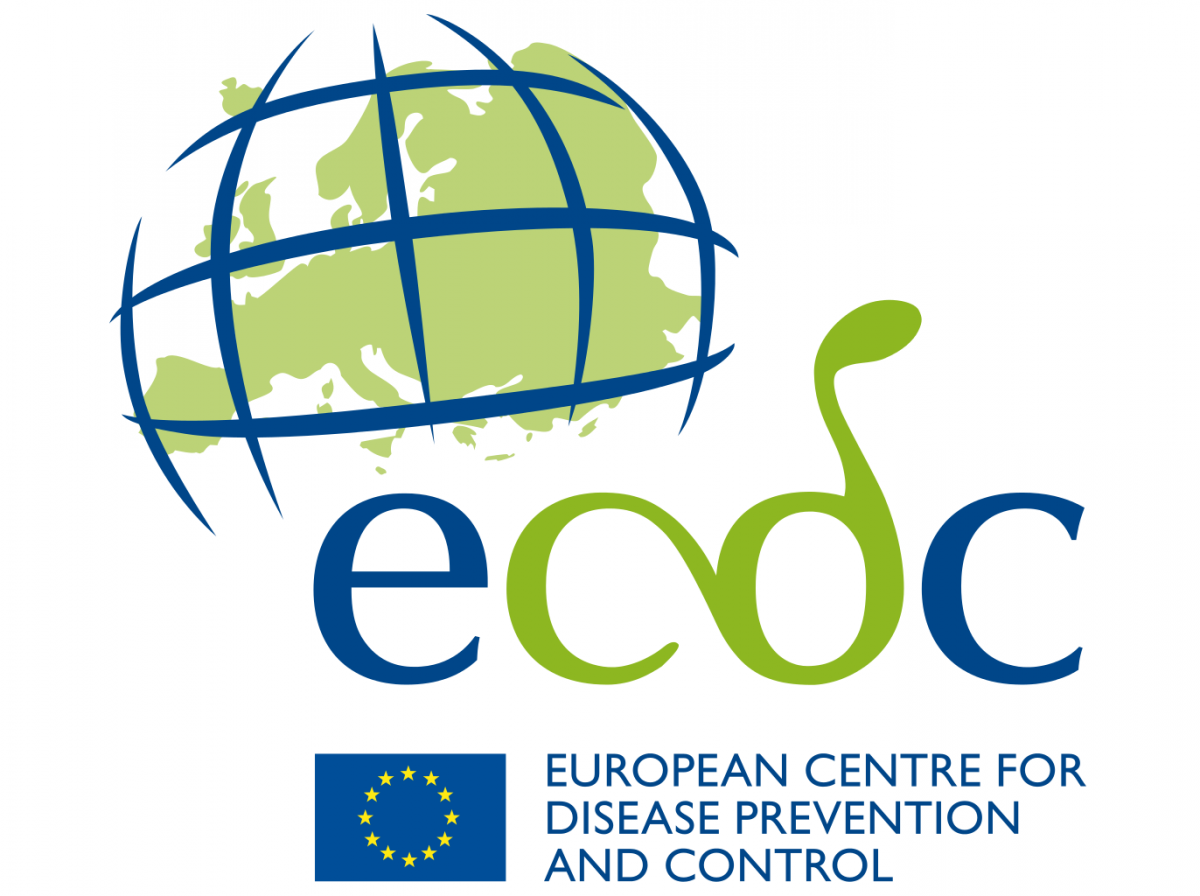
Data released at the end of February by the European Centre for Disease Prevention and Control (ECDC) and the European Food Safety Authority (EFSA) on antimicrobial resistance in zoonotic and indicator bacteria from humans, animals and food indicates that antimicrobial resistance (AMR) is showing no signs of slowing down. In particular, the analysis reveals that antimicrobials used to treat diseases that can be transmitted between animals and humans, such as for example campylobacteriosis and salmonellosis, are becoming less effective.
The information that was analysed jointly by ECDC and EFSA stems from data gathered via the 28 Member States of the European Union, Iceland, Norway and Switzerland throughout 2017. When comparing the newly released data to the summary reports from the past years the rise in AMR becomes evident. The report focuses on data regarding Salmonellaand Campylobacterisolates from humans and fattening pigs as well as data on indicator Escherichia colifrom fattening pigs and calves under 1 year of age and meat derived thereof. A few Member States also reported data on the occurrence of meticillin-resistant Staphylococcus aureus (MRSA) in animals and food.
Resistance to fluoroquinolones (such as ciprofloxacin) has become so high in Campylobacterbacteria in some countries that these antimicrobials no longer work for the treatment of severe campylobacteriosis cases. In Campylobacter, also high to extremely high proportions of bacteria were found to be resistant to ciprofloxacin and tetracyclines. However, combined resistance to critically important antimicrobials was very low to low in Salmonella and Campylobacter from humans and animals and in indicator Escherichia colifrom animals.
For more detailed information read report HERE
Access country specific data HERE
EMA booklet on the journey of a centrally authorised medicine
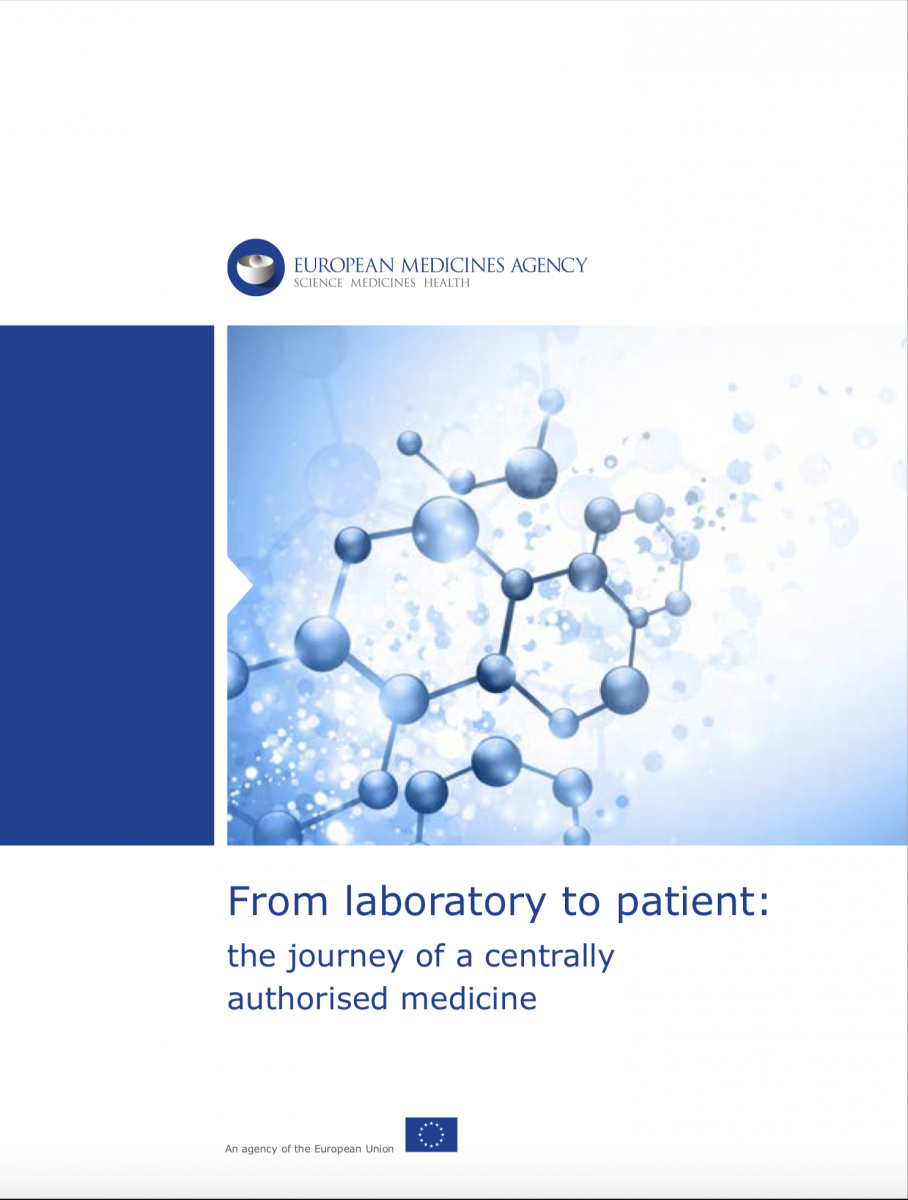
The European Medicines Agency (EMA) has published a booklet describing the journey of a medicine for human use which is authorised by the agency via the centralised procedure. The booklet covers the journey of the authorisation from initial research to discussions on patient access to medicines across the EU. It describes in particular how the EMA supports medicine development by providing scientific advice and how it assesses a medicine’s benefits and risks once it receives an application for marketing authorisation. All the steps involved in these processes, including the involvement of patients, healthcare professionals and other external experts, as well as the principles guiding the scientific discussions are outlined.
EJHP: March issue is available!
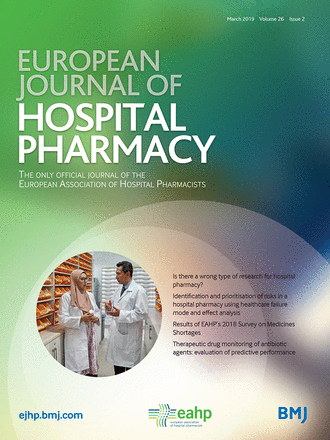
The March issue of the European Journal of Hospital Pharmacy (EJHP) contains a number of interesting original articles including articles on EAHP’s 2018 Medicines Shortages Survey report, antimicrobial stewardship and person-centred consultation skills. The editorial explores if there is a wrong type of hospital pharmacy research. The EAHP Position Paper section sheds light on the views of hospital pharmacists on biosimilar medicines.
Read more HERE
In March 2019 the following events will be organised by EAHP’s member associations:
- 8th+ 9th March – Estonian Society of Hospital Pharmacists: Spring Conference (Pärnu, Estonia)
- 8th+ 9th March – Portuguese Association of Hospital Pharmacists: Updates on Immunology and Ophthalmology (Aveiro, Portugal)
- 13th+ 14th March – Norwegian Association of Hospital Pharmacists: General Assembly and Course Day focusing on ATMP (Oslo, Norway)
- 18th+ 19th March – Section for Hospital Pharmacy of the Swedish Pharmaceutical Society: Nordic Precision Medicine Forum (Stockholm, Sweden)
- 22nd+ 23rd March – Spanish Society of Hospital Pharmacists: Reunion of the Galician Region (Ourense, Spain)
- 23rd+ 24th March – Fédération Nationale des Syndicats d'internes en Pharmacie et en Biologie Médicale: 52ndCongress (Grenoble, France)
- 31st March – German Society of Hospital Pharmacists: Unit Dose Academy 2019 (Hamburg, Germany)
[EAHP Statement Corner]
Do you want to become part of the SILCC programme?
Have you ever thought about joining EAHP’s Statement Implementation Learning Collaborative Centres (SILCC) program? The first SILCC fellows will be starting their visit at hospitals in Germany, Spain and the United Kingdom in the coming weeks to learn about procedures linked to the European Statements of Hospital Pharmacy. In case you are thinking about following their example, don’t forget that EAHP offers limited financial aid to SILCC fellows. Have a look at our website to learn more about the programme and the application procedure. We hope to welcome you soon as one of our fellows.
------------------------------------------------------------------------------------------------

Consultations
Public consultation on EMA Regulatory Science to 2025
The purpose of this public consultation is to seek views from EMA’s stakeholders, partners and the general public on EMA’s proposed strategy on Regulatory Science to 2025 and whether it meets stakeholders’ needs. By highlighting where stakeholders see the need as greatest, participants have the opportunity to jointly shape a vision for regulatory science that will in turn feed into the wider EU network strategy in the period 2020-25.
Deadline – 30th June 2019
Access consultation HERE
EMA - Guideline on the evaluation of medicinal products indicated for treatment of bacterial infections
The EMA has launched a consultation on the revision of its guideline on the evaluation of human medicines indicated for the treatment of bacterial infections. Antimicrobial resistance is a global public health problem. Regulators in the European Union, the United States and Japan have had extensive discussions over the last few years to explore and agree how to align as much as possible their respective data requirements so that medicine developers can design clinical trials that meet the evidence needs of multiple regulatory agencies. The revised guidance reflects the outcome of these discussions.
Deadline – 31st July 2019
Access consultation HERE
EMA – Public consultation on key principles for the electronic product information of EU medicines
The European Medicines Agency (EMA), together with the European Commission (EC), has launched a public consultation on draft key principles which will form the basis on which the electronic product information (ePI) for human medicines will be developed and used throughout the European Union. The rationale behind the ePI is that digital platforms open additional possibilities to disseminate the PI electronically. This can address some of the current limitations and better meet patients’ and healthcare professionals’ needs for accessible, up-to-date information on medicines. The draft key principles are the result of extensive discussions and consultations carried out by EMA, the Heads of Medicines Agencies (HMA) and the EC throughout 2018, with representatives of all stakeholder groups.
Deadline – 31st July 2019
Access consultation HERE

